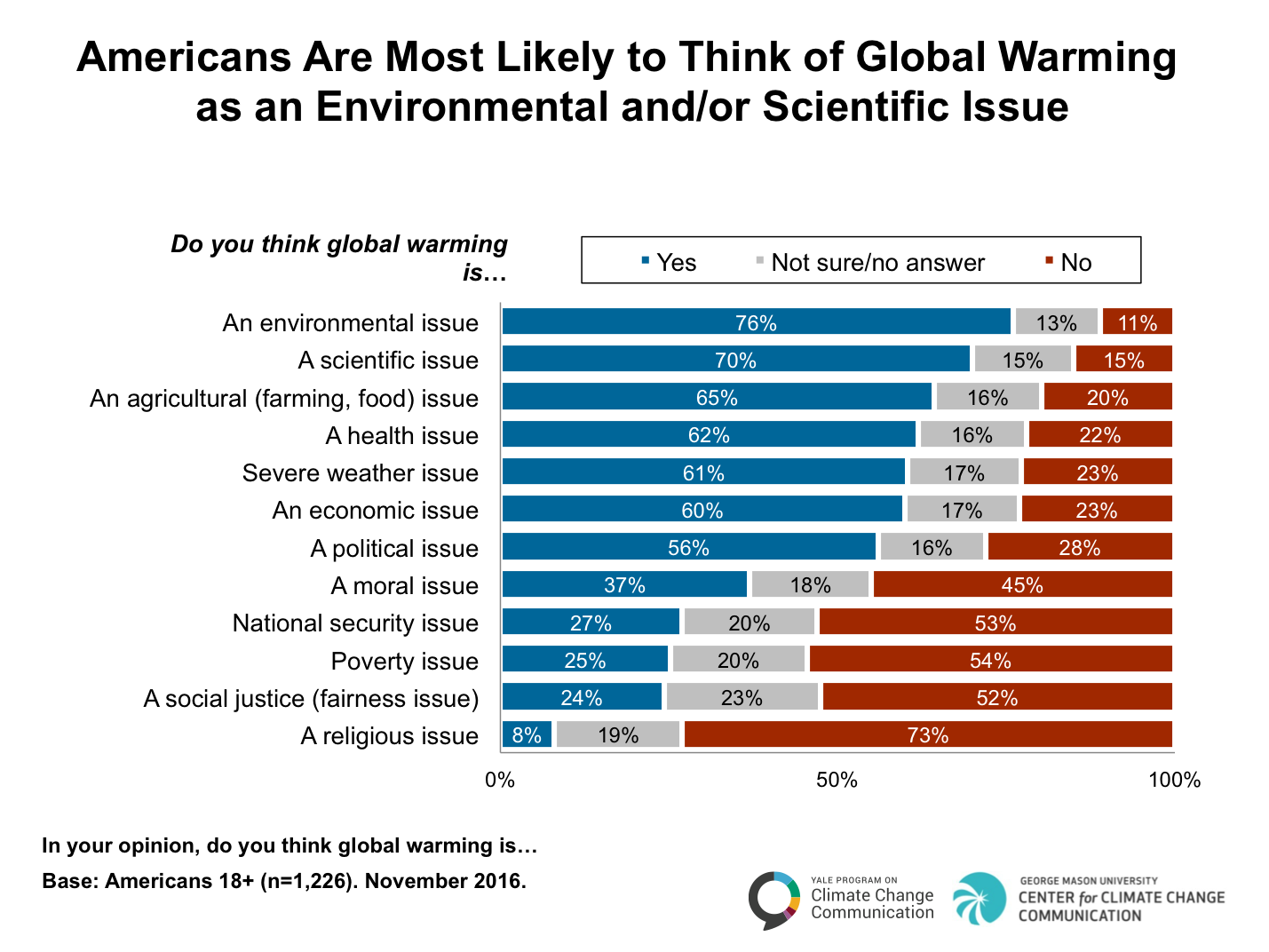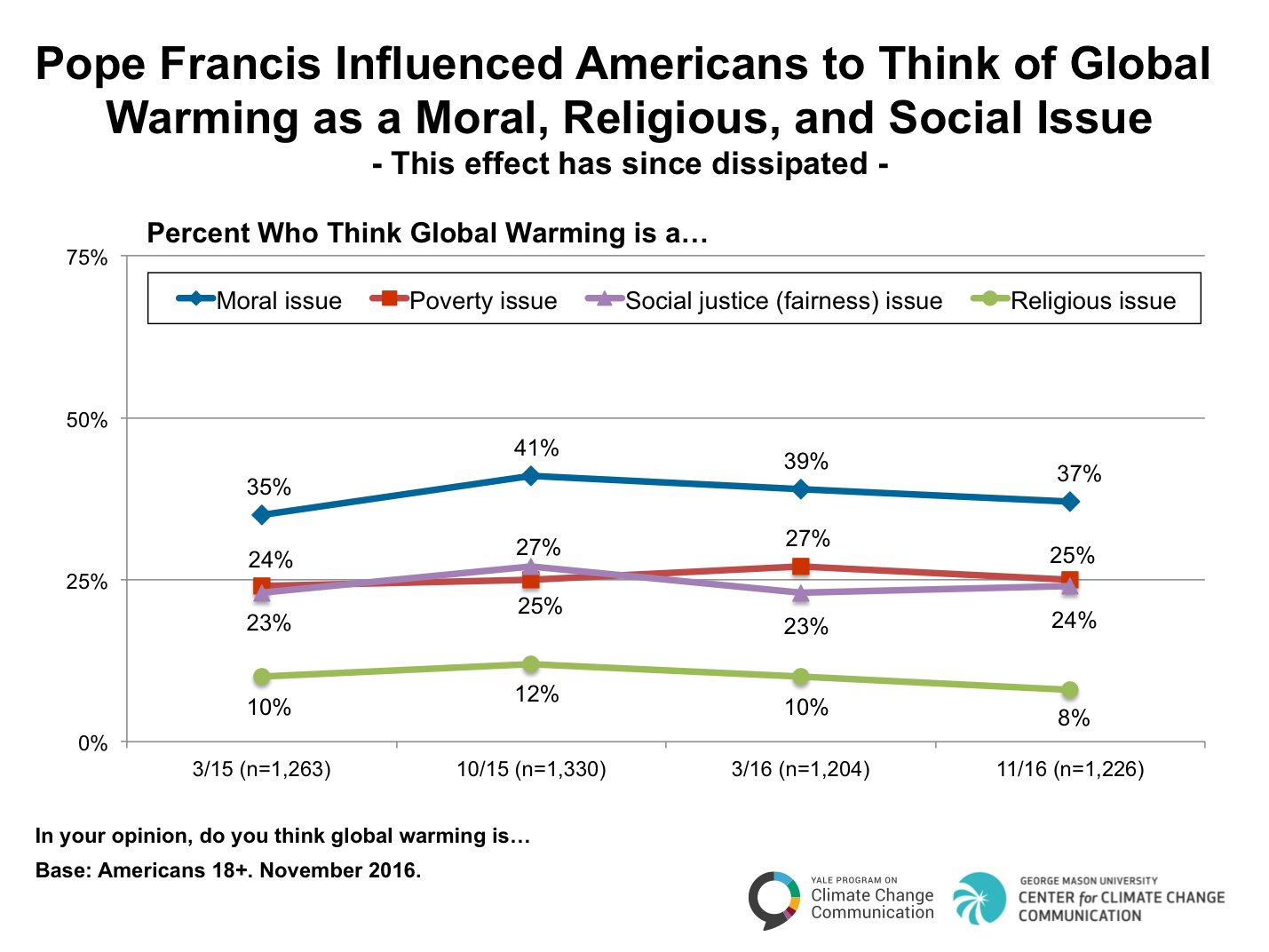Report · Jan 18, 2017
Climate Change in the American Mind: November 2016
By Anthony Leiserowitz, Edward Maibach, Connie Roser-Renouf, Seth Rosenthal and Matthew Cutler
Filed under: Beliefs & Attitudes
6. How Americans Conceptualize Global Warming
Americans are most likely to think of global warming is an environmental and/or scientific issue.
Global warming is a complex challenge with many dimensions. Understanding how people conceptualize the issue is critical to formulating effective communication strategies.
To better understand how Americans think about global warming, we asked respondents to indicate what kind of issue, if any, they consider it to be: environmental, scientific, economic, health, moral, religious, etc.
Three in four Americans (76%) say global warming is an environmental issue, and seven in ten (70%) say it is a scientific issue. Majorities also say global warming is an agricultural (65%), health (62%), severe weather issue (61%), economic (60%), and/or political (56%) issue.
Fewer consider global warming a moral (37%), national security (27%), poverty (25%), social justice (24%), or religious issue (8%).
In June of 2015, Pope Francis issued an encyclical titled Laudato Si’: On Care for Our Common Home, in which he presented a strong moral call to action to protect the world’s poorest and most vulnerable people from climate change. His views about the moral, religious, and social dimensions of climate change were also covered broadly in American news media during his September 2015 U.S. visit.
In the months following the release of the encyclical and the papal visit, we found small but significant increases in the proportions of Americans who said that global warming is a moral, social justice, or religious issue.Maibach, E., Leiserowitz, A., Roser-Renouf, C., Myers, T., Rosenthal, S., & Feinberg, G. (2015). The Francis Effect: How Pope Francis changed the conversation about global warming. George Mason and Yale University. Fairfax, VA: George Mason University Center for Climate Change Communication. Since then, however, the proportions of the public who view global warming as a moral, social justice, or religious issue have returned to their pre-encyclical levels.
This suggests that – consistent with the findings of other research on the effectiveness of public service messagesPalmgreen, P., Donohue, L., Lorch, E., Hoyle, R. & Stevenson, M. (2001). Television campaigns and adolescent marijuana use: Tests of sensation seeking targeting. American Journal of Public Health, 91, 292-296. – messages about global warming need to be repeated and reinforced to maintain and increase their effect.

